ArcLight’s end dims Hollywood’s recovery story
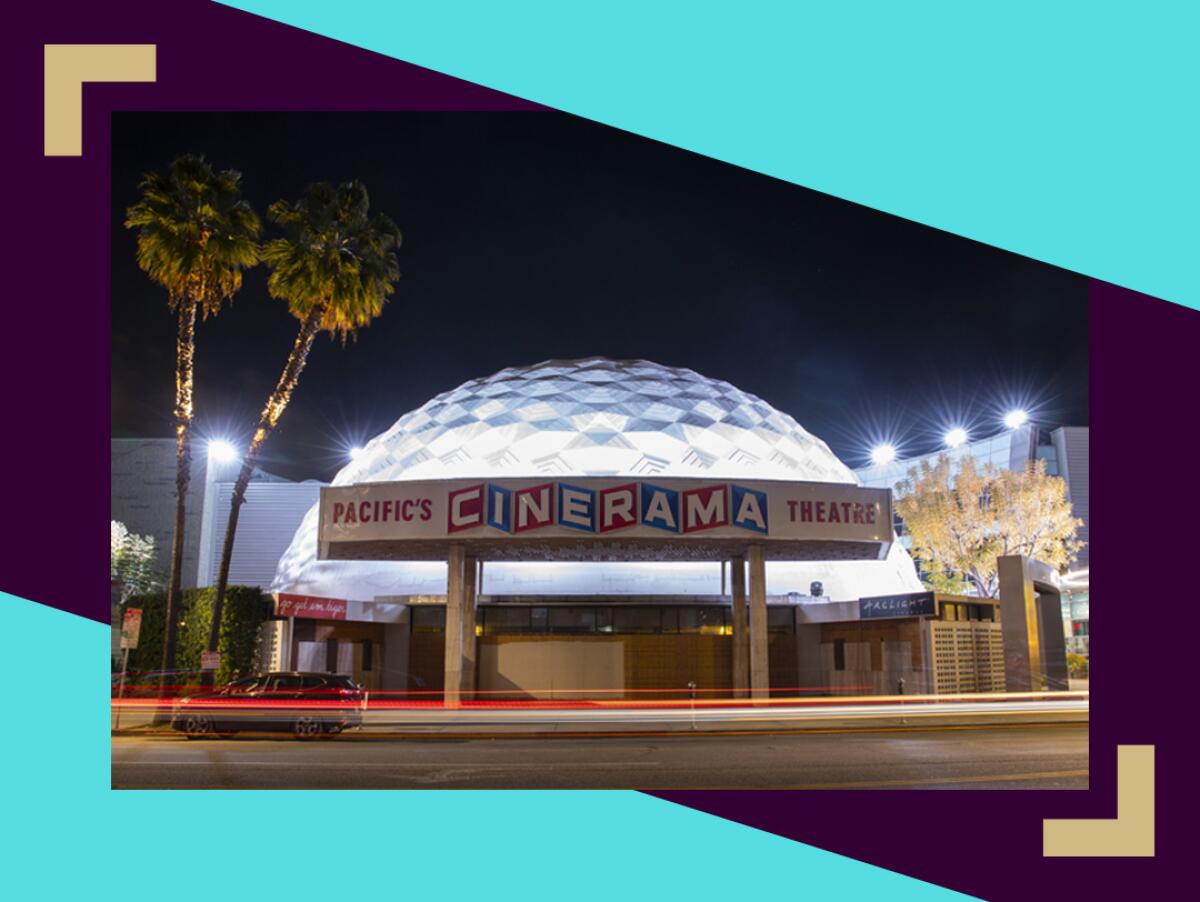
This is the April 13, 2021, edition of The Wide Shot, a weekly newsletter about everything happening in the business of entertainment. Sign up here to get it in your inbox.
For the past few weeks, as vaccinations rolled out across the state and movie theaters reopened, I told myself the first theater I would go back to was the ArcLight Cinemas in Hollywood.
Now it looks like that is not going to happen. Late on Monday, ArcLight and sister chain Pacific Theatres, which together operated some of L.A.’s top cinematic destinations, said they would not be opening their doors after the pandemic.
Perhaps we should have seen it coming. Ever since Los Angeles County moved out of the dreaded “purple” tier, we watched as AMC, Regal and even Laemmle announced their reopening dates. But not ArcLight.
The parent company, L.A.-based Decurion Corp., is saying nothing beyond the four-paragraph statement attributed to Pacific Theatres. “This was not the outcome anyone wanted, but despite a huge effort that exhausted all potential options, the company does not have a viable way forward,” the Pacific statement said.
The outpouring of misery on social media reflected the blow this deals to the heart of the entertainment industry. “Knives Out” filmmaker Rian Johnson put it well in a statement provided to my colleague Mark Olsen. ArcLight wasn’t just a movie house, it was an innovator.
“There’s a reason every movie lover in L.A. is in mourning,” Johnson said. “If you lived in this town and loved movies, you’ve had life-changing experiences in that complex. But more than that, it’s easy to forget how the Arclight completely transformed the moviegoing experience: assigned seating, plush comfy chairs, no late entry to screenings — these were all considered wild and crazy ideas when they first opened.”
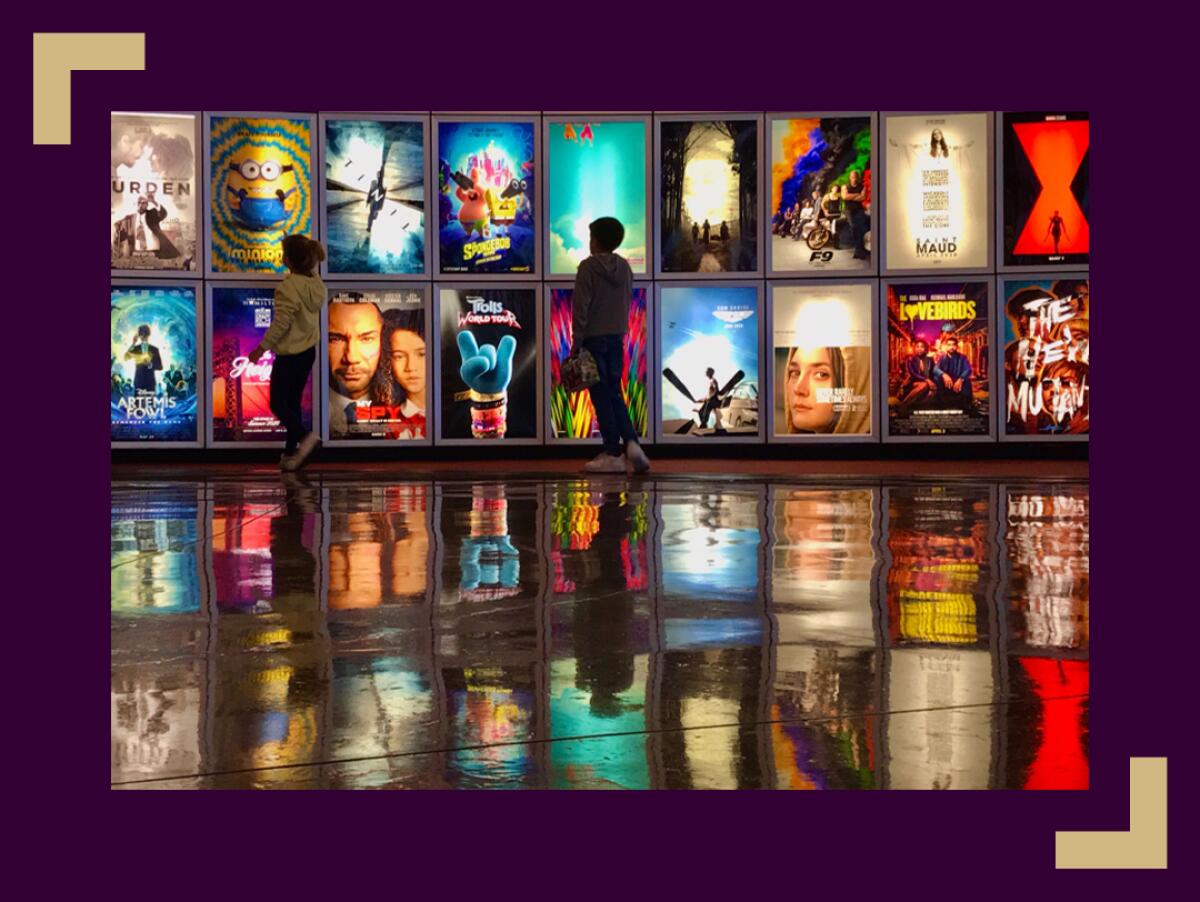
As Hollywood inches back to health, I have spoken with more executives, agents and filmmakers than I can count about what the post-pandemic future looks like for the entertainment industry. With production increasing, some movie theaters opening, vaccination rates rising and studios starting to call workers back to offices, Hollywood is reaching a point where some kind of normalcy is visible through binoculars, if you squint.
There are finally signs of life for the theatrical box office, such as Warner Bros.-Legendary’s “Godzilla vs. Kong” grossing $359 million globally, despite also being available in the U.S. on HBO Max for no extra charge. According to NRG, 61% of U.S. moviegoers are comfortable returning to movie theaters now, up 9 points from a month ago. And there’s much more to come as studios get more comfortable releasing the titles they’ve held back, like Disney’s “Black Widow” in July.
Inside the business of entertainment
The Wide Shot brings you news, analysis and insights on everything from streaming wars to production — and what it all means for the future.
You may occasionally receive promotional content from the Los Angeles Times.
But it’s undeniable that ArcLight’s demise dims that growing flame of optimism. For exhibition’s cheerleaders, it’s a reality check and a further sign that it will be a long road to recovery for theater chains, especially smaller ones that can’t turn to Wall Street for a financial buffer.
Paramount on Friday delayed the release dates of “Top Gun: Maverick” and “Mission: Impossible 7,” as key territories in Europe (Germany, Italy, France), as well as Brazil and Japan, struggle with vaccinations. It’s a global business, and ViacomCBS and Paramount aren’t willing to sacrifice the money they could make around the world with these tentpoles.
In more bad news, we’re about to watch an Oscars ceremony that is all but certain to plummet in the ratings because of the lack of big films and the general weirdness of having a gala event during a pandemic. As Stephen Battaglio reports, TV executives are anticipating viewership of 12 million to 15 million for the live ceremony, compared with last year’s audience of 23.6 million.
And a big long-term question on the minds of every creator and theater owner remains: How will movies be released after the pandemic upended the norms of film distribution? Few people think the business is returning to movies being released exclusively in theaters for months before you can watch them in the living room. Studios say they still support — and need — theaters.
But if anyone has come up with a grand, convincing, unified theory about what the movie business will look like once the pandemic nightmare becomes the stuff of memory, we haven’t heard it.
I was struck by WarnerMedia CEO Jason Kilar’s podcast interview with Re/code’s Peter Kafka, in which he provided fodder for pro-streaming pundits and theatrical traditionalists alike when talking about the AT&T-owned company’s movie strategy.
“I think you’ll see two types of movies,” said Kilar, who shook up the film industry last year with his plan to release all of the studio’s 2021 movies on HBO Max and in theaters simultaneously. “There’s certainly going to be the epic and the big motion pictures that will go to theater[s]. ... But there’s also going to be a number of movies that we proudly produce at Warner Bros. that go to HBO Max on the first day as well.”
What to make of this? It will depend on what WarnerMedia considers “theatrical” enough to promise a 45-day exclusive run in multiplexes, as stipulated under the terms of the studio’s recently announced deal with Regal and, presumably, other exhibitors to follow.
Clearly films like “Godzilla vs. Kong,” “The Batman” and “Fantastic Beasts” are in the made-for-multiplex category. But does the new scheme leave the door open for the next “Judas and the Black Messiah” or $30-million Melissa McCarthy comedy to go direct-to-consumer? It’s not clear that even WarnerMedia knows for sure where all these movies are going — nor do many other studios.
The best news for movie fans from Kilar’s interview was his suggestion that streaming will result in Warner Bros. producing more films, not fewer, despite prestige TV shows hogging so much of the cultural attention. “Not everybody wants to sit down and commit to a multiweek or multi-month story,” he said.
Yes, people still love movies. Cinephiles in Los Angeles really loved seeing them at the ArcLight on Sunset Boulevard. My colleague Roger Vincent makes the point that, in locations that Decurion owns, including the shopping center with the Cinerama Dome, it’s possible that another operator could become a tenant showing movies in the venerable venue.
Whatever happens, the end of ArcLight’s run leaves a giant, rectangular-screen-size hole in L.A.’s film culture.
Hollywood production
Speaking of reopening the industry, data from FilmLA shows productions in the greater Los Angeles area growing significantly from January, when studios were asked to hold off amid a COVID-19 surge. But while shooting is holding steady week to week, further increases will be held back until the county’s health order is lifted. More on that later this week.
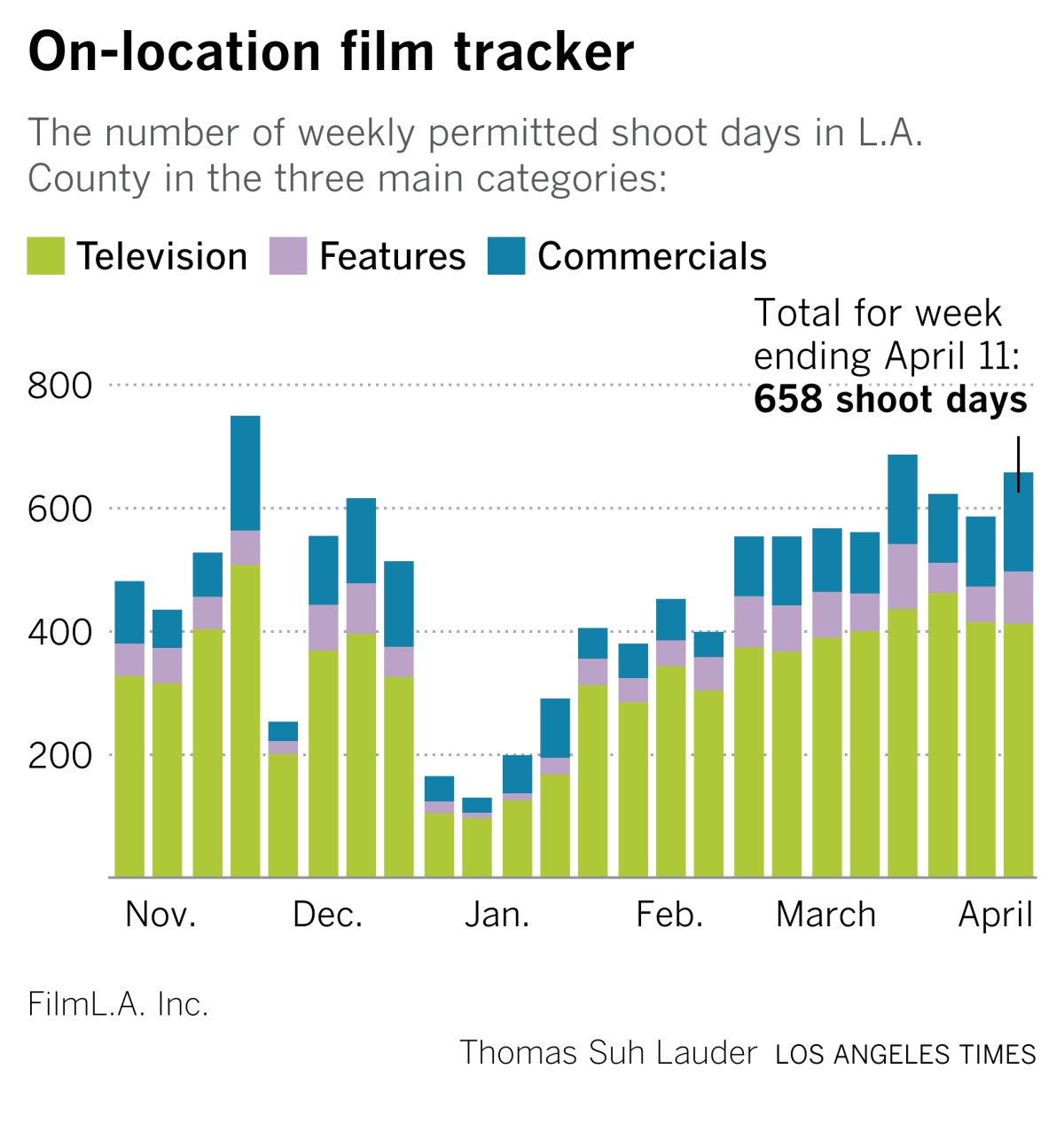
More stuff we wrote
— Apple’s Will Smith drama “Emancipation” will boycott Georgia over its new voting law, which Gov. Brian Kemp signed last month.
— Hollywood lawyer Howard Weitzman, attorney to Michael Jackson and Justin Bieber, has died at 81. His client list included almost every studio, plus CAA, William Morris and a long list of stars such as Arnold Schwarzenegger, Britney Spears and Sean Combs.
— The Bowl is back? After its historic closure, the Hollywood Bowl reopens May 15 with a free concert for healthcare workers, first responders and other essential workers, including grocery store staff, custodians and delivery drivers.
— Disney unveiled the June opening date for its Marvel-themed Avengers Campus at Disney California Adventure in Anaheim.
— An appreciation for the gravel-voiced rapper DMX, dead at 50 following an overdose at his home in White Plains, N.Y.
— Netflix scored a deal to become the streaming home of Sony Pictures theatrical movies after they hit cinemas and home video. Netflix will also have a first-look deal for movies Sony makes specifically for streaming.
Consequence culture
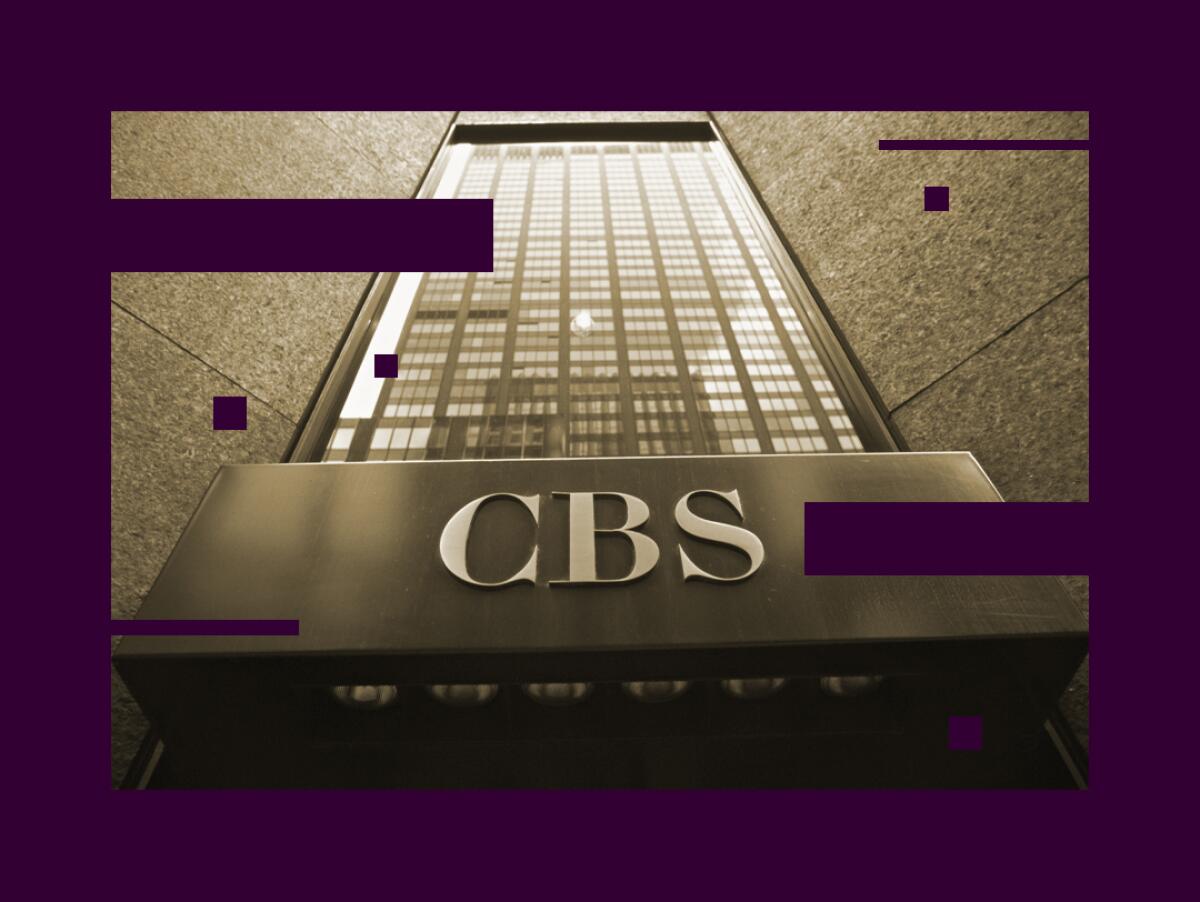
CBS ousted two powerful TV station executives last week, following allegations of racist and abusive behavior unearthed by Meg James’ investigation into the media giant. Peter Dunn, who served as president of the TV Stations group since 2009, and David Friend, senior vice president of news for more than a decade, are no longer part of CBS, James reported.
Dunn and Friend have denied any inappropriate conduct. On Wednesday, Dunn’s attorney, Larry Hutcher, said that his client was a victim of “cancel culture” and that Dunn expects to remain on CBS’ payroll until the investigation concludes. Friend’s attorney, David Pohl, said he and Friend were confident that “the accusations will be proven false.” CBS, in a statement, dismissed such conjecture, saying, “It is clear to us that this action is appropriate and necessary at this time.”
The shakeup at CBS, coming two months after The Times’ original series of stories, marks the latest example of ramifications for executives who’ve been accused of racism, bullying or other inappropriate behavior. CBS’ decision came the same week as a scathing Hollywood Reporter piece on super-producer Scott Rudin, in which former staffers detailed years of bullying behavior, including some who gave on-the-record quotes. Rudin declined to comment to THR about any of the specific allegations in the story, written by Tatiana Siegel.
One of the lasting effects of the #MeToo movement has been an increased willingness of employees at media companies to speak out about their negative experiences in the industry — not just sexual harassment, but abuse in many forms. Mary McNamara’s recent column, which mentions Rudin, the CBS executives and director Joss Whedon, makes the case that the industry needs to stop making excuses for bad behavior.
“Too often in this country, achievement is used to justify being an abusive jerk,” she wrote. “Some even seem to believe achievement requires it: Powerful men and women are expected to have powerful personalities, and even in the 21st century power continues to be expressed in the form of sexual, racial, physical, verbal or emotional abuse.”
Number of the week

Two startups that are changing the way content creators and thought leaders communicate with fans achieved private valuations of around $4 billion last week.
Patreon, the San Francisco firm that allows podcasters, musicians and others to make money directly from individual supporters, tripled in value to $4 billion after raising $155 million from Tiger Global Management, according to the Wall Street Journal. Meanwhile, Bloomberg reports that Clubhouse, an app that lets users host their own audio chats, is raising money at a $4 billion valuation and may have even held talks to sell to Twitter at that price.
The $4 billion number is a coincidence (a fun one!). What the stories speak to, though, is the power of audio as a media business growth area (outside of terrestrial radio, anyway) and the desire for creators to build more direct connections with audiences as traditional outlets struggle to adapt to digital.
Investors are clearly happy to back such projects that skirt media gatekeepers. Ben Smith’s latest column takes a look at the phenomenon as it relates to the independent newsletter platform Substack, while also tying adult content outlet OnlyFans and B-lister video greeting company Cameo to the trend. The rise of Substack, Patreon and Clubhouse reflects a broader shift in power from powerful gatekeepers (including Hollywood studios) to talent, he argues. Though let’s remember that in the case of Clubhouse, the “talent” includes a lot of Silicon Valley bigwigs.
More top stories
— Trading cards! SPACs! NFTs! I think we won 2021 media investor bingo thanks to this WSJ headline on a deal for Topps, which is chaired by former Disney CEO Michael Eisner.
— CNN’s public editor raises questions about Nielsen’s TV ratings in the streaming era and how the news industry’s measurement fixation affects coverage. (CJR)
— Media reporter Edmund Lee goes deep inside the fight for the future of the Wall Street Journal, including the News Corp.-owned paper’s internal coverage review. (NYT)
— Great read from Laura Bassett: “An Interview With the Man Who Keeps Uploading My Feet to WikiFeet.” It’s less cringe-worthy than it sounds. (The Cut)
Finally ... Miles ahead
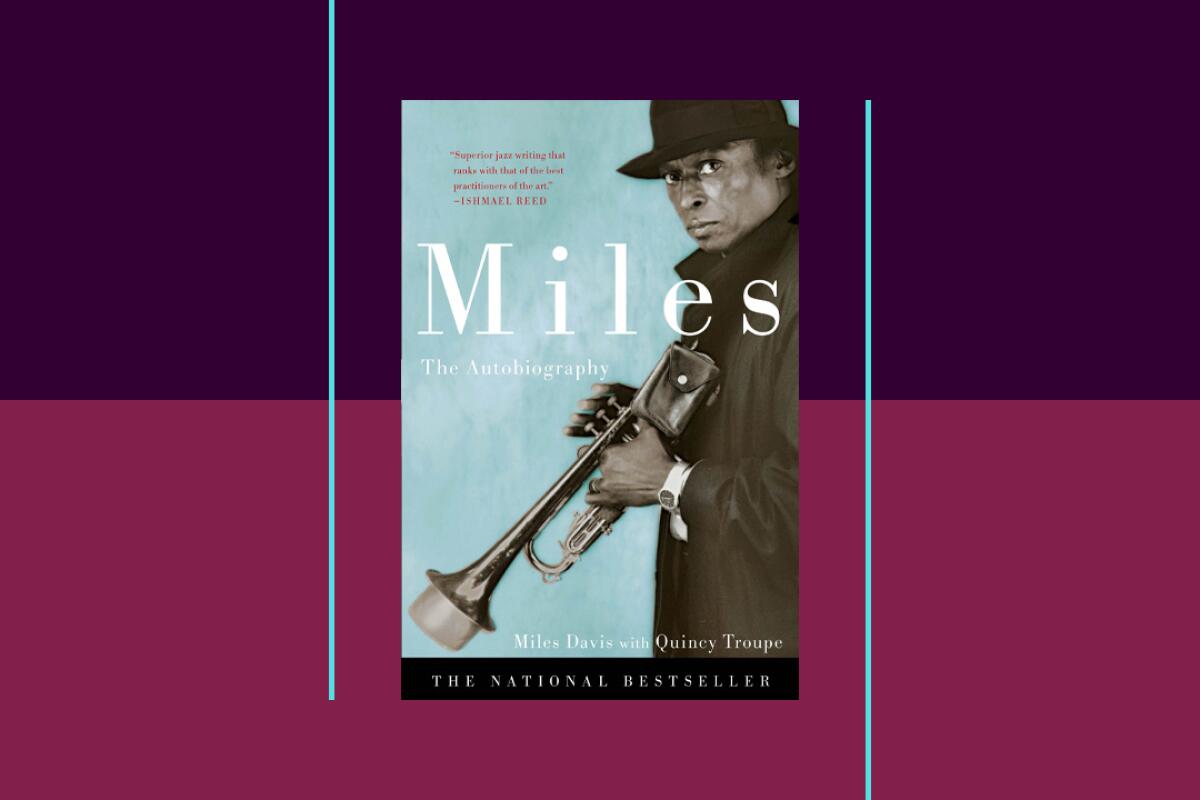
I’ve spent a couple of late nights reading “Miles: The Autobiography,” the jazz great Miles Davis’ highly entertaining and often troubling (as noted in The Times’ original review) recollection of his life story. Written with Quincy Troupe and published in 1989, the tome has been especially helpful for me in contextualizing some of the trumpeter’s post-1975 material, like “You’re Under Arrest,” the title of which was inspired by police harassment of Black Americans.
Inside the business of entertainment
The Wide Shot brings you news, analysis and insights on everything from streaming wars to production — and what it all means for the future.
You may occasionally receive promotional content from the Los Angeles Times.




